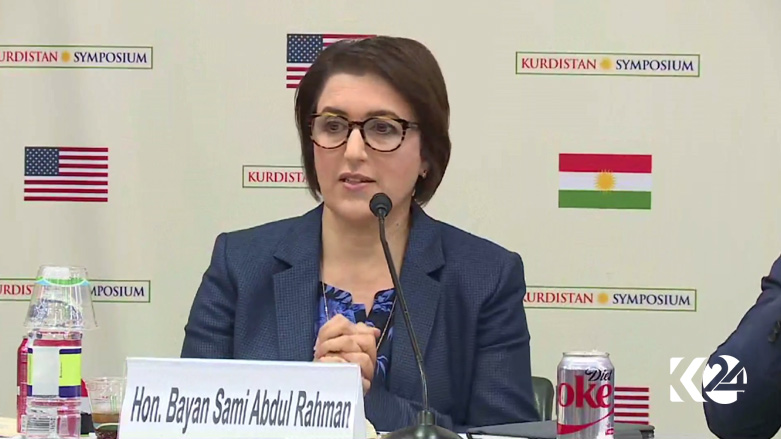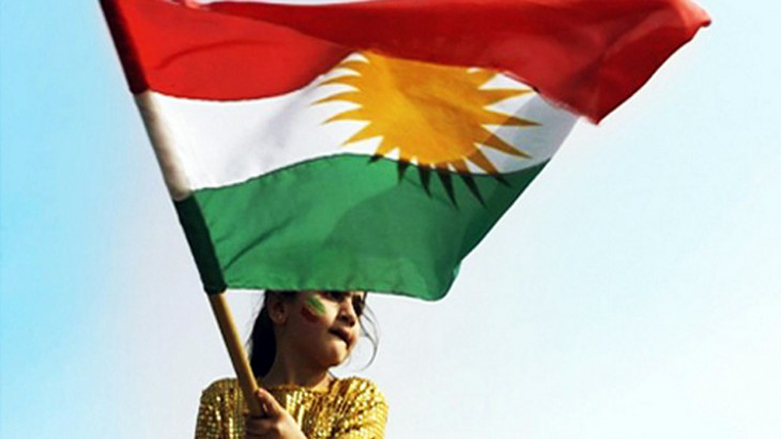Independence will bring many economic, financial tools to Kurdistan: KRG Representative

WASHINGTON DC, United States (Kurdistan 24) – The Kurdistan Region has no control over monitoring policies, and independence will bring many economic and financial tools to the Region, said a Kurdish official on Friday.
The Washington Times, in partnership with Kurdistan 24, hosted a conference in Washington DC on Friday titled “The Kurdistan Region: Strategic US Ally in a Tough Neighborhood.”
The event explored and discussed the most important issues related to the upcoming referendum on Kurdish independence scheduled for Sep. 25.
In one of the panels titled “Economic Opportunities and Development,” the Kurdistan Regional Government (KRG) Representative to the US Bayan Sami Abdul Rahman discussed the economic development issues facing Kurdistan.
She mentioned Kurdistan enjoyed a golden decade between 2003 and 2014.
“Our economy and society flourished. Kurdistan opened to the world after decades under the dictatorship [in Iraq],” she stated.
Rahman said accomplishments in the oil, gas, and infrastructure sectors of that decade “should be recognized.”
The Kurdish official explained that after 2014 the Kurdistan Region faced challenges including the Islamic State (IS) war, its federal budget cut from Baghdad, international drop in oil prices, and the flow of 1.8 million displaced people and refugees
She reminded of the UN Humanitarian Coordinator for Iraq Lise Grande’s statement that 80 percent of the humanitarian aid to the displaced people and refugees in Kurdistan fell on the shoulders of the KRG while the remainder was fulfilled by local and international humanitarian organizations.
Rahman highlighted some of the reform measures taken by the KRG to tackle the economic crisis in the region, including the biometric registration of public employees to eliminate duplicate pensions and ghost workers and the privatization of some sectors for better services.
The Kurdish representative said the people of the Kurdistan Region have been under pressure in a hostile Middle East where such reforms are unpopular.
The KRG is implementing improvements in the government structure with the help of the World Bank to diversify the economy of the region and boost the private sector, she said.
“We are very grateful that we have oil,” Rahman said. “Oil has been a curse that has been used against us and other people of Iraq [in the past].”
“For the first time, the oil of the Kurdistan Region has been used to feed the people of Kurdistan,” she continued. “That’s an achievement.”
Rahman added it was important to recognize the KRG does not want to be a rentier state which solely relies on oil revenue.
“We want to diversify our economy when we are independent,” she declared. “Independence will bring a lot of economic and financial tools to us.”
“Now, the monitoring policies are in the hands of Baghdad. Kurdistan has no control over the monitoring policies. We don’t have our Central Bank to carry out quantitative easy,” Rahman continued.
“We don’t have a central bank with billions of dollars of reserves as Baghdad does. Baghdad can draw down on those reserves; we get none of that. When we are independent, we can use these financial tools,” she added.
The Kurdish representative noted the KRG could borrow from international markets, issue bonds, and attract investors more easily when Kurdistan becomes an independent state.
“Right now, there is a political risk to invest in Kurdistan, but I would argue that political risk is anywhere in the Middle East. The difference is Kurdistan has a bright future,” Rahman concluded.
Editing by Karzan Sulaivany

